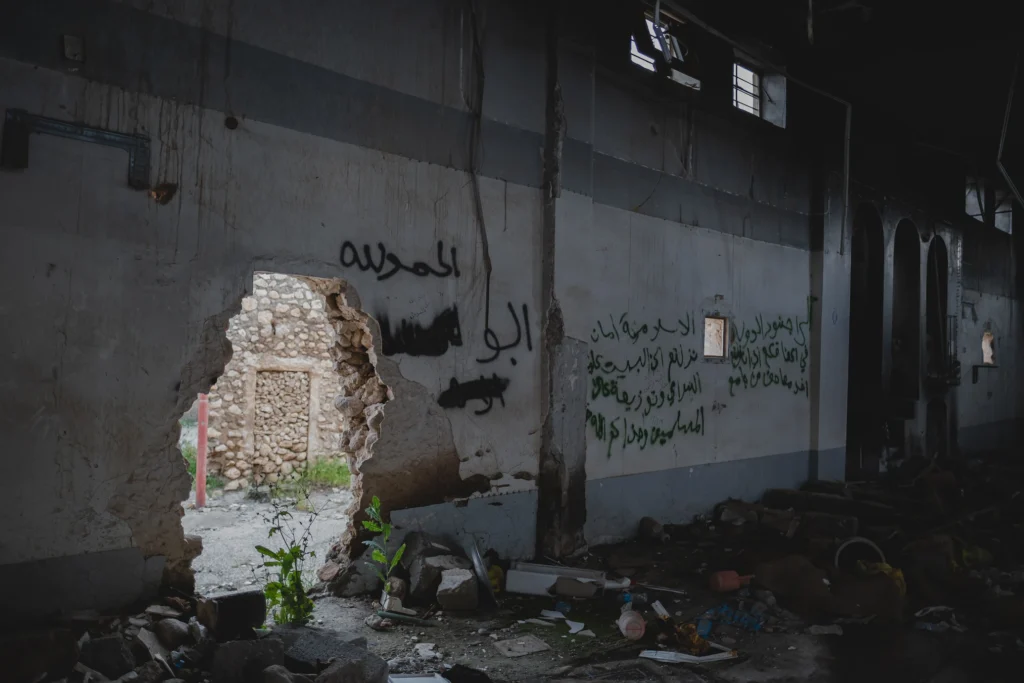For a long time now, the United States has sought to champion human rights and promote democracy abroad. However, this article will analyze how many of these humanitarian responses arguably have resulted in some of the worst human rights abuses.
The invasions of Iraq and Afghanistan are two notable examples —and there are many examples — of how a U.S. military presence negatively impacted the welfare of the country, resulting in gross human rights abuses. American foreign intervention has led to civilian death, torture, prisoners of war and damage to critical infrastructure. The solution? The United States must reevaluate its strategy of policing the world and spread the torch of democracy and freedom through other means, not by the barrel of a gun.
This is not to say that American involvement outside its borders has been entirely in vain. There have been instances when these interventions have had a positive impact in improving a given state’s welfare and contributing to a safer international community.
For example, the U.S. intervention in response to the Iraqi invasion of Kuwait can be viewed as one of the more positive outcomes of American presence in the Middle East. Yet, one thing is clear: intervention by the United States needs to be done for reasons more complex than just political ambition or retaliation.
One could argue that U.S. invasions have been driven by economic interests, political ambitions or a desire for global dominance. In the Middle East, the United States has had a tendency to denounce the region’s problematic human rights record, yet overlook or prioritize its economic interests when its allies are the ones responsible for such abuses. This can be seen in Saudi Arabia and Israel, both important allies of the United States, who have been criticized for violating freedom of speech and occupying Palestine, respectively.
Regardless of how strong these political and economic motivations may be, this cannot override the legality, morality and effectiveness of these invasions, especially when touting the white banner of humanitarian intervention. Given the current geopolitical climate, it would be naive to assume a complete cessation of the United States’ efforts to promote human rights abroad. However, we need an approach that is unbiased and focused on promoting long-term change rather than short-term political gain.
In the case of Afghanistan, the United States intervened in response to the September 11, 2001 terrorist attack. The cost of human life dwarfed the limited American success in the region. Afghanistan was left in a far worse position than it was in 2001 before the United States set up a base in the region. Additionally, the opportunity cost of the invasion was too high, given that the resources could have been better spent on establishing robust infrastructure, education and strengthening democracy.
The U.S. government never had a coherent strategy for rebuilding Afghanistan and frequently changed course or pursued conflicting objectives — pointing out a common variable that needs changing in the way we approach interventions. More could have been done to produce a safe and effective occupation, with a more sustainable transition to a stable democracy. It might not have worked in the end, but the policies enacted made it virtually certain that intervention and the tenuous government in Afghanistan would fail.
Failings in Afghanistan and Iraq still haunt U.S. foreign policy and reflect weaknesses in the current approach rather than an institution with justifiable actions. Limited understanding of the local context and an overemphasis on security overdevelopment have limited the success of U.S. post-conflict reconstruction. Furthermore, humanitarian intervention has face value at best and focuses solely on short-term displays of power.
From the discussion, it became evident that the wars may have been quick victories, but the aftermath and its consequences were not considered. The United States’ approach to human rights is unjust as it selectively chooses which violations to address and turns a blind eye to others.
There are valuable lessons to be learned from both past war mistakes and missed opportunities where the international community, particularly the United States, could have played a role in protecting human rights. In the event of intervention, a sensible approach would be to strike a balance between indulging in endless wars and invading without a clear purpose to rebuild or enforce long-term democratic values that promote human rights. The United States’ attempts to promote human rights and democracy through military interventions have frequently led to severe human rights violations, revealing a need to reassess the country’s approach, prioritize unbiased methods and focus on long-term change rather than short-term political gain.






